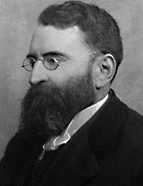

In 1899, Demografia e Higiene da Cidade do Porto (Demography and Hygiene of the City of Porto) appeared, volume I of the Anuário do Serviço Municipal (Municipal Service Yearbook). The work includes the revised text of Origens e desenvolvimento da População do Porto (Origins and Development of the Population of Porto), incorporating data from the 1890 census at national and local level, with an international comparison. Classifying Porto as a “cemetery city”, this demographic study, based on a historical view of the population, highlighted the need for history to produce health knowledge, setting a model followed by other doctors.
In 1899, the report “The Bubonic Plague in Porto”, recounting the progress of the epidemic at the time, opens with the transcription of a letter from King João II to the Porto City Council, dated 1493, on the “pestilency” experienced in the city. The Historical Archive continued to help explain health issues! However, the situation created by the “plague” forced Ricardo Jorge to move to Lisbon, given the unrest in the city in the face of the health measures adopted by the government, which imposed the isolation of the city and brought about economic paralysis. Hostile reactions of great violence were directed against him, the messenger of bad news.
His transfer to the health services of the Ministry of the Kingdom (and to the Lisbon Medical-Surgical School) resulted in the reorganisation of the services, with the creation of the Central Institute of Hygiene (1899) and the production of a key document – the General Regulations for Health and Public Welfare Services (1901), whose preamble provides a historical overview of the situation. Ricardo Jorge was appointed inspector general of these services and, shortly afterwards, director general. Admitting himself to be a bureaucrat of the central government, he often alluded to the lack of means to implement measures. However, it was in these roles that he began representing Portugal at the Office Internationale d’Hygiène Publique, travelling around the world to meetings and congresses , leaving scientific memoirs and travel accounts in periodicals, as well as finding time for other studies.
This work is financed by national funds through FCT - Foundation for Science and Technology, I.P, in the scope of the projects UIDB/04311/2020 and UIDP/04311/2020.
